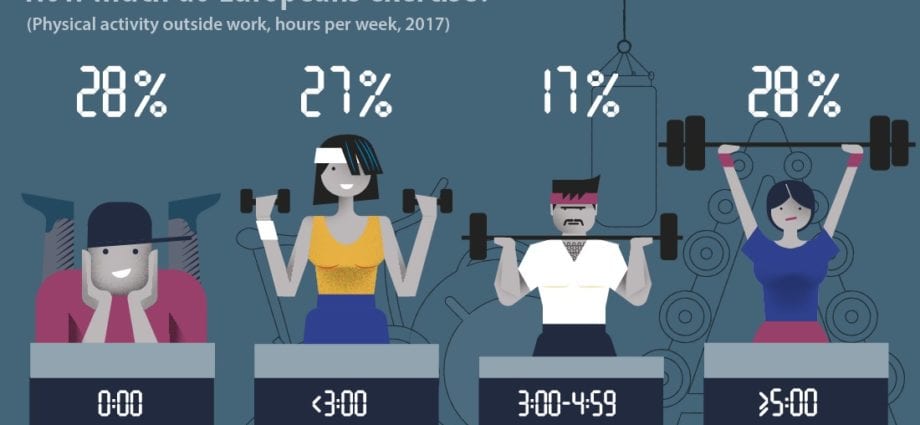Experts continue to debate physical activity. According to common standards, 150 minutes of moderate physical activity per week is the optimal amount of exercise to promote and maintain health. However, it is not clear if the recommended amount is the minimum required for everyone – or if it is the ideal amount of workloads. Scientists also did not know if there is an upper limit on the loads beyond which the consequences become potentially dangerous; and whether some exercises (particularly in terms of intensity) might be more effective for health and life extension than others.
Two impressive new studies published last week in JAMA Internal Medicine bring some clarity to this question. Based on their results, scientists have concluded that the ideal amount of exercise is slightly more than some of us think today, but less than many of us might expect. And long-term or intense exercise can hardly be harmful to health; on the contrary, they can even add years to your life.
Scientists from the US National Cancer Institute, Harvard University, and other agencies have collected and pooled data on people’s physical activity from six large ongoing health surveys. The information collected from more than 661 thousand middle-aged adults was processed.
Using this data, the researchers divided adults by the amount of time spent on weekly training, ranging from those who did not exercise at all to those who exercised 10 times the recommended minimum (i.e., spent 25 hours of moderate physical activity per week or more). ).
They then compared the 14-year statistics for the number of deaths in each group. Here’s what they found.
- It turned out, and not surprisingly, that among people who do not play sports at all, the risk of early death is highest.
- At the same time, even among those who exercised little, the risk of premature death decreased by 20%.
- Those who followed the guidelines closely with 150 minutes of moderate exercise per week lived longer, and over a 14-year period, this group had 31% fewer deaths than the non-exercising group.
- The most significant differences were observed among those who exceeded the recommended level of exercise three times, exercising in moderation, mainly walking and running, for 450 minutes a week, or a little more than an hour a day. For these people, the risk of premature death was 39% lower than for those who were inactive and did not exercise at all, and at this point the health benefits reach their maximum limit.
- The few people who exercise 10 times the recommended rate have about the same reduction in the risk of premature death as do people who simply follow the guidelines. The extra hours they spend sweating in the gym don’t make their lives longer. But they do not increase the risk of dying young.










